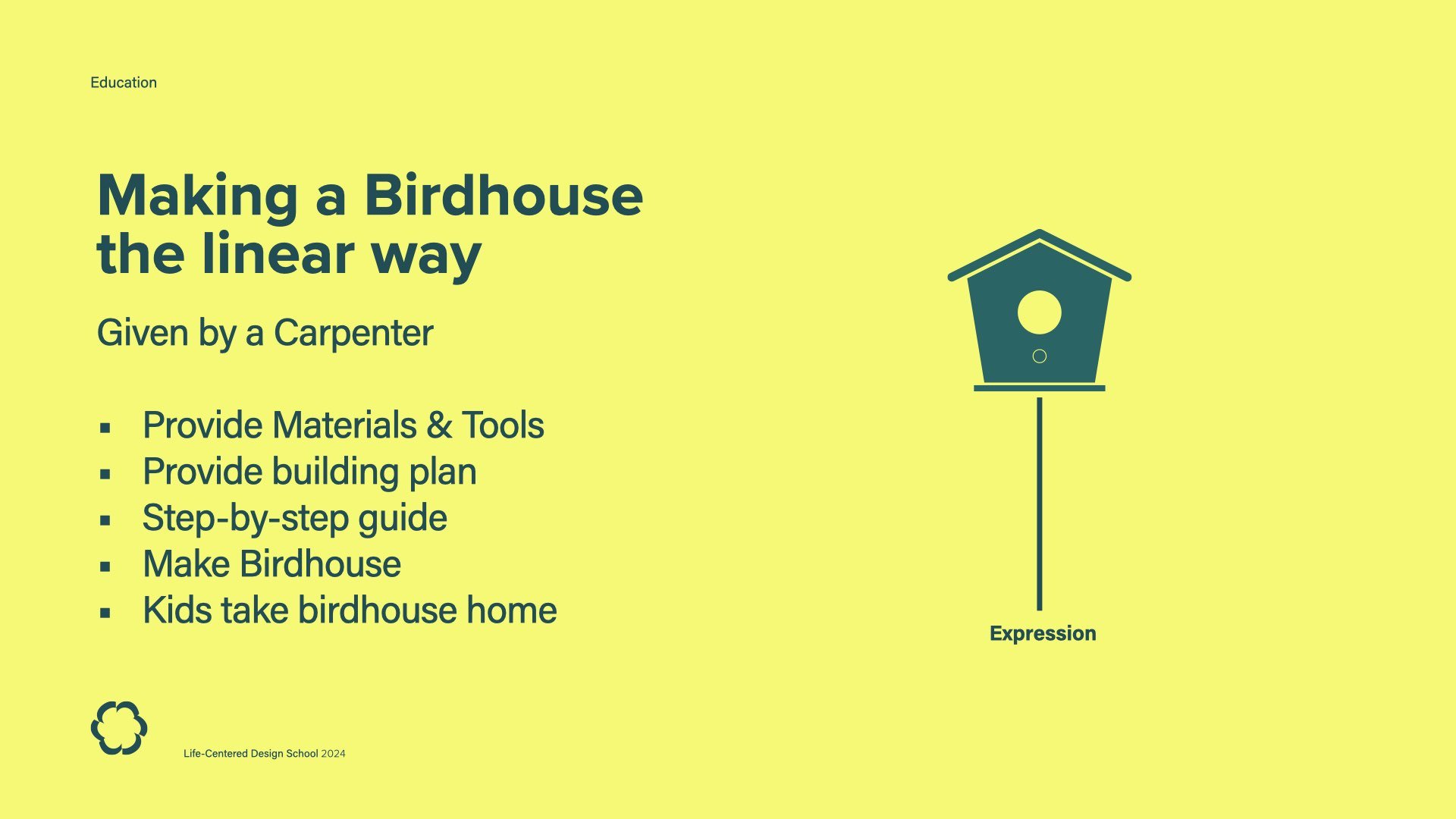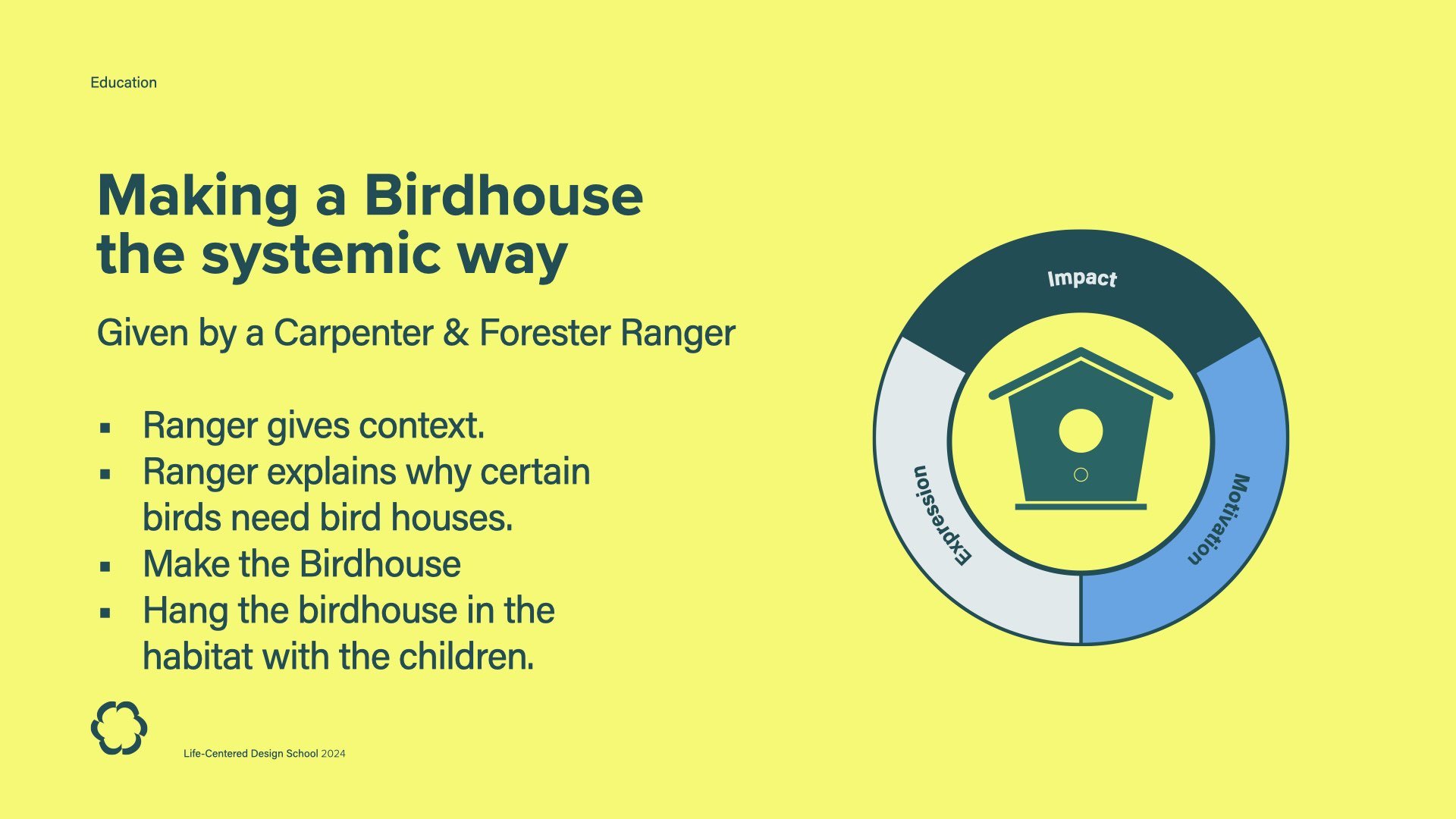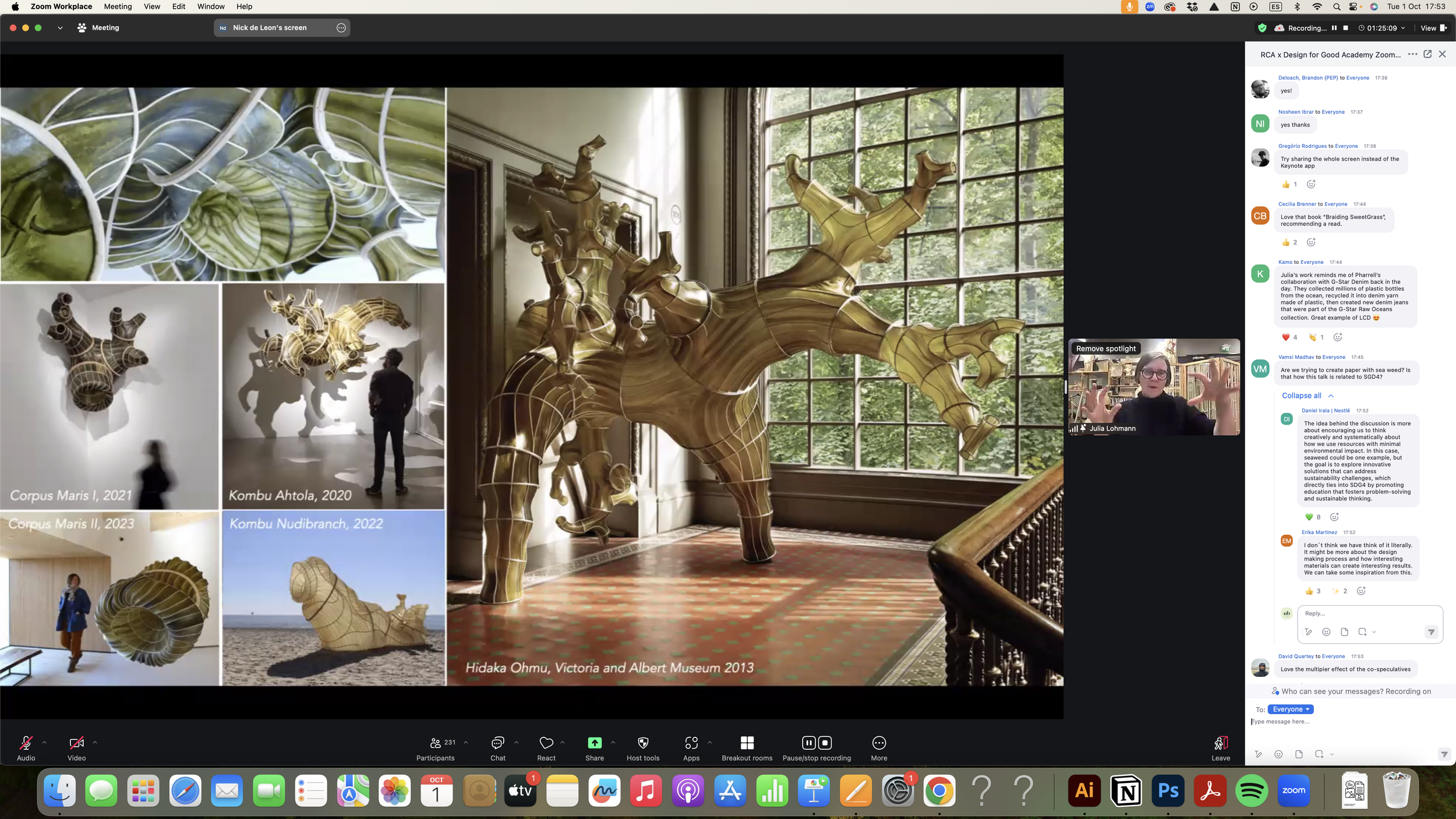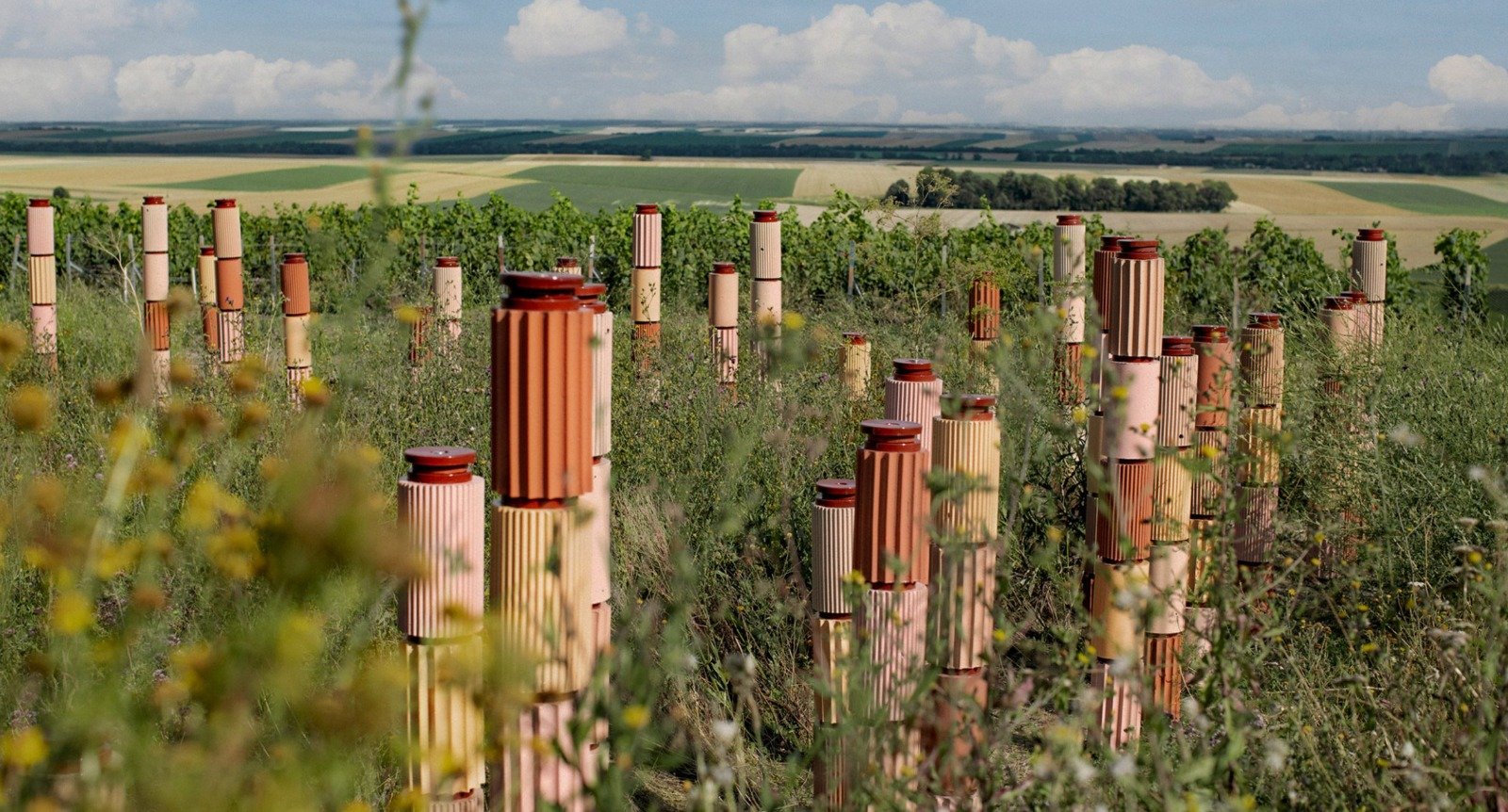LCD Weekly Issue - 031 - Deep Conversations
⛰️ Words from the mountains
This week, I had the honour of giving a presentation for the Design For Good Academy, hosted by the Royal College of Arts. I discussed the importance of slowing down the way we design, conversing with the ecosystem, and adopting a life-centered design mindset. Over two days, over 300 designers worldwide attended the online session.
If you don't know Design for Good, this is what they say about themselves on their website: "Design for Good brings together designers around the world with a shared goal of improving life through design. These designers then develop products and services with impacted communities that are donated fully open-source.
We are a non-profit alliance of leading global organisations that will directly harness the power of design to create a positive impact by addressing the United Nations Sustainable Development Goals, on a scale only possible through global collaboration."
Let me give a short recap of my talk:
When you go too fast with a mountain bike down the mountain, you can only see the trail you ride on. The rest is a blur. The same happens if you only design in sprints and your focus is a single user. The impact you make on the environment and underrepresented communities is a blur. So, if we want to design life-centered and understand the ecosystem of our design work, we have to slow down. You can slow down by:
S - Start Differently
L - Learn to be uncomfortable
O - Observe the ecosystem
W - Wait with decision making
Slowing down allows us to converse and establish relationships with the ecosystem around us, which helps us better understand our impact on nature, communities and economies.
Your mindset is the collection of beliefs or assumptions, consciously or unconsciously influencing how you meet your needs, think, feel, and approach things, ultimately shaping your actions and outcomes. We must change our designers' mindset to move to a more holistic way of designing. The way to do this is to change our design experiences and how we do things. "Experience and our interpretation of those experiences shape our mindset." For example, making Non-Human Personas from a tree, a bird, or a Forest is an experience that allows us to change our mindset over time to a Life-Centered one.
Design for Good just started a new cycle. Their focus for the next two years is SDG 4: Quality Education for All. I added some remarkable educational examples, including the school of our kids. They organise birdhouse-making workshops for the whole family. And it is not about the birdhouse. It is about creating nesting opportunities for birds that cannot make holes in trees to make a nest. During the workshop, we did not just make a birdhouse; a forest ranger explained to us the context of why we make the birdhouses. Due to deforestation in the 20th century, the diameter of regrown trees is too small for the birds to make nesting holes. When we finished, we hung the birdhouses in the trees, and the ranger checked them in spring.
🐅 LCD in the Wild - Julia Loham
I was not the only one who gave a talk last week at the Design For Good Academy. Professor of Design Julia Lohman shared her passion for seaweed with the participants. Julia finds inspiration outside established design disciplines and in unusual and undervalued natural materials. She is one of the founders of the Department of Seaweed, a collective and platform for developing marine algae as a sustainable material for making. Her engaging talk made me want to run outside into the forest and find the seaweed equivalent of the mountains.
Go check out Julia Lohman her amazing and inspiring work!
🪄 Inspiration- FormaFantasama - Biodiversity Island
I learned about Formafantasma this week and spent some time exploring their website. I recommend you do the same!
"Formafantasma is a research-based design studio investigating the ecological, historical, political and social forces shaping the discipline of design today. Whether designing for a client or developing self – initiated projects, the studio applies the same rigorous attention to context, processes and details. Formafantasma's analytical nature translates in meticulous visual outcomes, products and strategies."
One of the projects I liked the most was the Biodiversity Island in a vineyard.
"The Biodiversity Island is a plot of land where we introduced specific kinds of vegetation to help the insects and the animals living in the area that inevitably struggle because everything is cultivated,"
"Our idea here is to use design to create an intervention that helps people understand what is difficult to understand when you look into a field," he continued. "Design can be a form of conversation with others and a translation of complex ideas into something that is more graspable."
🔥 Hot in the School - LAST DAYS TO JOIN!
The countdown is on, friends!
Our course "Shifting from Human to Life-Centered Design" starts this Friday! You can still join last minute! The last day to enroll is Wednesday, October 9th.
Experience a distinctive and unique focus on sustainability and regeneration, creating impact, and fostering professional growth. If you're a designer looking to improve your skills, work on purpose-driven projects, and take a leadership role within your team, then this course is designed specifically for you.
Course details:
The course will run every Friday, starting October 11th, from 3:00 p.m. to 5:30 p.m. CET. We will meet via Zoom for live sessions and use Mural as our working online space; each participant will have their board. Guest speakers will join us for two sessions to inspire us with regeneration and prototyping. You will get access to our beautiful online environment, which is full of theory, exercises, inspiration, thought-provoking questions, and more.
The course will run for 7 weeks, ending on November 22nd. If you ever miss a session, don't worry! We always upload the recordings on Mondays. If you need a quick catch-up call during the course, feel free to reach out to us. Our main communication channel is our Whatsapp group, Cohort 5, inside the Life-Centered Design School Community. Here, we organize events for our members, inspiration, and discussions. Overall, it's a super lovely space to be with like-minded people. We're almost at 100 members now!
Payment options:
We offer payment in two installments: one before the course starts and the other halfway through. If you have another proposal, please let us know. We want to make this workshop available to anyone interested!
Reimbursement options are possible; we can work with your company to enroll you!
Change the way you design forever! 👇🏻👇🏻👇🏻👇🏻👇🏻
That is all for this week! See you next Monday!
Jeroen







